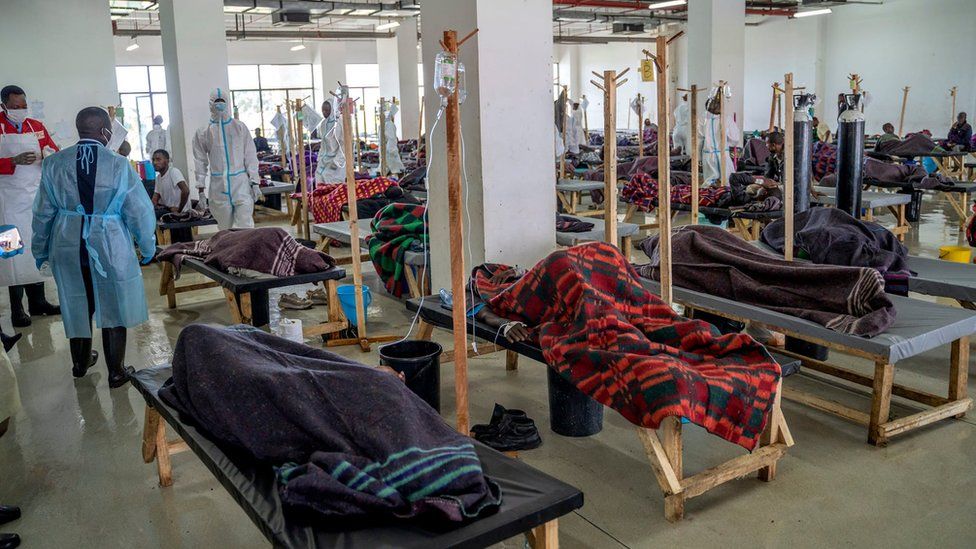Zambian President Hakainde Hichilema has called on people to move from towns to villages in an effort to curb a cholera outbreak that has claimed around 300 lives. President Hichilema attributed the outbreak to poor sanitation in densely populated urban areas. He suggested that relocating to rural areas would help decongest major towns, offering more space and “perfect sanitation.”
The cholera outbreak has resulted in over 7,500 reported cases nationwide since October, with more than 500 new cases and 17 deaths in the last 24 hours. The World Health Organisation (WHO) plans to send approximately one million cholera vaccine doses to assist in containing the outbreak.

President Hichilema visited the Heroes Stadium Cholera Treatment Centre in the capital, Lusaka, where over 1,000 patients are receiving treatment. He acknowledged the need for “hard to swallow” measures to eradicate the waterborne disease.
The President appeared to attribute the proliferation of poorly planned informal settlements in urban areas to some Zambians who moved to towns without clear objectives. He emphasised the availability of land and clean water in villages and encouraged young people to engage in farming in rural areas.
The government plans to upgrade existing slums in towns and prevent the emergence of new ones. The cholera outbreak has affected eight of Zambia’s ten provinces, prompting preventive measures such as the delayed reopening of schools. The neighbouring countries of Mozambique and Zimbabwe have increased surveillance to prevent cross-border transmission. Zimbabwe has been grappling with its own cholera challenges due to a lack of clean water.
Cholera is a waterborne bacterial disease that spreads through contaminated water or food, causing severe dehydration, vomiting, and diarrhoea. The disease can be fatal within hours if left untreated.


